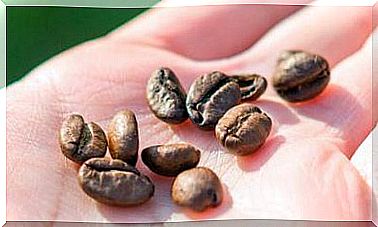Customize Your Diet To Help Your Genes
Your genetics do not determine your health completely. Through diet you can also regulate its activity and prevent diseases.

Transforming genetic research into therapy is the dream of many scientists: it would represent the greatest revolution in the treatment of chronic and acute, metabolic, degenerative and tumor diseases.
However, although genes contribute to shaping our organic structure and function, they do not determine it. The environmental factors play a more powerful role in longevity, cognitive ability, emotional balance, health and disease.
What you eat influences your genes and your health
One of the most studied fields, cancer, shows that only 5% of tumors in all organs are directly related to heritable factors.
The rest (95%!) Respond to genetic changes produced by toxins such as:
- Tobacco
- The diet
- Sedentary lifestyle
- Stress
- Infections
That is, genes can be activated and also deactivated by influences received from the environment.
The importance of external factors
In fact, researchers estimate that around 90% of the 23,688 genes that make up the human genome are activated or stopped in relation to signals from the environment.
The action on the genes of external agents such as food defines both health and disease. It is a complex process by which an external stimulus, such as food, activates a gene and starts its operation.
More technically:
- A food molecule – a vitamin, mineral, fatty acid, or antioxidant compound – activates a receptor on the membrane of a cell
- This receptor sets in motion mechanisms that are directed towards the nucleus. In the nucleus is where the chromosome that receives the message is found.
- Upon receiving the message , the gene is activated that will activate the manufacture of a protein through the corresponding RNA.
The complete stimulus-DNA-RNA-protein chain is a wonderful creation of nature, with such complexity that each of its steps has given rise to a specific field of knowledge. I insist that the signals that activate the whole process do not come from the DNA or the gene in question, but rather constitute a response to an external stimulus.
In fact, the processes that are activated in the body and its metabolism by a single gene are exceptional. There is usually no gene for a function, nor a gene, normal or altered, is decisive for the development of a tumor or other disease.
Most of the time, a set of genes, in relation to a wide range of stimuli, direct the concert of our physiology that underpins our health and our vulnerabilities.
The precise diet for your genetics and your vulnerabilities
In recent years, nutrigenetic studies have allowed the identification of genetic variants associated with susceptibility to certain diseases, potentially modifiable through interaction with dietary factors.
Based on this knowledge, precision medicine can be practiced that takes into account interindividual differences, such as genetic profile, microbiome, and environmental factors.
In relation to diet, based on a genetic analysis or an observation of the symptoms, a personalized treatment can be made . The application of precision nutrition takes into account not only people’s genetic heritage, but also their preferences, their perception of taste, the best cooking techniques, the use of spices, the pleasure and enjoyment of food.
The greater the risk of disease, obesity, dyslipidemia, diabetes or cardiovascular disease, a complete study of the person becomes more important in order to use a type of nutrition favorable to their genetics and vulnerabilities.
3 biomarkers to keep in mind
A person may have genes (polymorphic variants) that make him react differently from most people to a particular substance.
1. The LCT gene
A well-known example is the LCT gene, which inhibits the production of the enzyme lactase and makes it difficult to digest milk sugar well. For this reason, individual genetic variability means that nutrient needs may be different from the average.
2. The case of selenium and zinc
The case of selenium and zinc is known.
- The need for selenium depends on a gene that codes for selenoprotein.
- The need for zinc depends on a gene that influences the metabolism of the pancreatic cells that control insulin. In people with a certain allele, blood glucose is lowered by increasing zinc intake.
Therefore, it is possible to make personalized nutritional recommendations based on the genetic study.
3. The FTO and MC4R genes
Another example is the FTO and MC4R genes, which determine the risk of diabetes and obesity, without being decisive because with a balanced plant diet they are not expressed.
From the genetic profile of an obese person, it is possible to know if they will respond positively to a low-fat diet or not.
The integrative personal profile, the iPOP
There is already talk of the creation of the integrative personal omic profile (iPOP), which would gather genetic, epigenetic and metabolic information, and on autoantibodies and microbiota, which would allow to offer preventive advice and individualized treatments.
These tests are expensive, but even if we do not have specific information, we can always choose the foods that have the most beneficial effect for the majority of people.
The diet that goes well for the majority
In general, you can take care of your health with a balanced diet :
- Protein
- Complex carbohydrates
- Abundant fruits and vegetables
- Pre and probiotic foods
- An increase in healthy fatty acids, especially omega-3
- Some supplements (EPA and DHA fatty acids, vitamin D3, multivitamins and antioxidants).
And if you also reduce toxins and medications, practice moderate physical exercise and keep stress at bay, you have the basic guidelines of a healthy life with less overweight, metabolic, autoimmune, degenerative, mental diseases and cancer, and with optimal well-being conditions physical and personal fulfillment.
Although more studies are needed, that certain factors turn gene expression on and off offers us the possibility of being conductors of our life, and sounding or silencing those functions that are favorable to our health and that, ultimately, give it meaning. to our life.
Should a genetic study be done?
In Spain, it is possible to carry out a complete genomic study from saliva for about € 2,000, approximately half of what it costs in the United States.
It must be taken into account that, in reality, they barely study 2% of the genetic code because, at the moment, the usefulness of the remaining 98% is unknown, which until recently was simply labeled “junk DNA”.
An extensive document informs the interested party of their genetic origin and that of their ancestors, of their possible risks or of alterations linked to rare syndromes and various diseases, in addition to their predisposition to different flavors and their sensitivity to noise or different medications.
Cancer risk and metabolism problems receive special attention, which not infrequently produces more harm than good, by generating in the person a state of alertness and anxiety that often makes them regret having requested the study.









